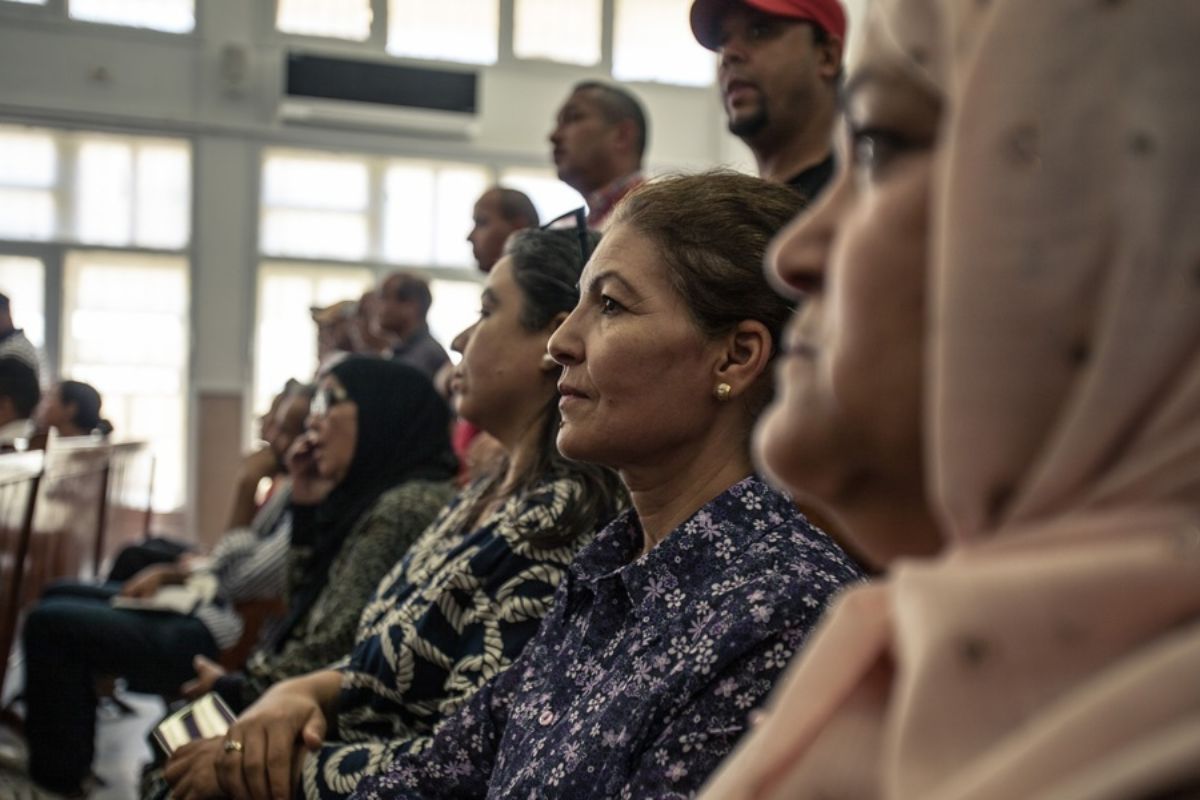
What sparked the Gafsa Uprising? The Gafsa Uprising of 1980 was ignited by deep-seated grievances among Tunisian miners. These workers faced harsh conditions, low wages, and lack of basic rights. Their frustration boiled over when the government ignored their demands for better working conditions and fair pay. The situation escalated when armed rebels, reportedly backed by Libya, attacked the mining town of Gafsa, aiming to overthrow the Tunisian government. This event not only highlighted the miners' plight but also exposed regional tensions and political instability. The uprising remains a significant chapter in Tunisia's history, shedding light on the struggles of the working class and the complexities of regional politics.
Key Takeaways:
- The Gafsa Uprising in Tunisia in the 1980s was a major protest by phosphate miners against poor working conditions and economic hardships, leading to a lasting impact on the country's history and political landscape.
- The uprising highlighted the power of grassroots movements and the need for social justice, sparking a sense of solidarity and prompting efforts to address economic inequalities in Tunisia.
Gafsa Uprising: A Turning Point in Tunisian History
The Gafsa Uprising was a significant event in Tunisia's history, marking a period of intense social and political unrest. This uprising, which took place in the early 1980s, had far-reaching implications for the country and its people. Here are some fascinating facts about this pivotal moment.
- The Gafsa Uprising occurred in January 1980 in the mining town of Gafsa, Tunisia.
- It was primarily driven by economic grievances, particularly among phosphate miners.
- The uprising was a response to poor working conditions, low wages, and high unemployment rates.
- The Tunisian government, led by President Habib Bourguiba, faced significant criticism for its handling of the situation.
- The uprising was marked by violent clashes between protesters and security forces.
- The Tunisian military was deployed to Gafsa to suppress the uprising.
- The Gafsa Uprising lasted for several weeks, with sporadic violence continuing for months.
- The Tunisian government accused Libya of supporting the uprising, leading to heightened tensions between the two countries.
- The Gafsa Uprising highlighted the deep-seated economic and social issues facing Tunisia at the time.
- It also exposed the limitations of the Tunisian government's ability to address these issues effectively.
- The uprising led to increased political repression in Tunisia, with many activists and opposition figures being arrested.
- The Gafsa Uprising is often seen as a precursor to the broader wave of social and political unrest that would later sweep across the Arab world.
- The events in Gafsa had a lasting impact on Tunisia's political landscape, contributing to the eventual rise of the Islamist movement.
- The Gafsa Uprising is remembered as a symbol of resistance and defiance against economic injustice and political repression.
- The uprising received limited international attention at the time, but it has since been recognized as a significant event in Tunisian history.
- The Gafsa Uprising was one of the first major challenges to President Bourguiba's rule, which had been relatively stable up until that point.
- The events in Gafsa also highlighted the role of labor unions in organizing and mobilizing workers for collective action.
- The Gafsa Uprising led to increased scrutiny of Tunisia's economic policies and their impact on ordinary citizens.
- The uprising also underscored the importance of addressing the root causes of social and economic discontent to prevent future unrest.
- The Gafsa Uprising is often cited as an example of the power of grassroots movements to effect change, even in the face of significant repression.
- The events in Gafsa had a profound impact on the consciousness of the Tunisian people, fostering a sense of solidarity and collective action.
- The Gafsa Uprising also highlighted the need for greater political and economic reforms in Tunisia.
- The uprising served as a wake-up call for the Tunisian government, prompting some efforts to address the underlying issues that had sparked the unrest.
- The Gafsa Uprising remains a powerful reminder of the importance of social justice and the need to address economic inequalities.
- The legacy of the Gafsa Uprising continues to resonate in Tunisia today, serving as a testament to the enduring struggle for dignity and justice.
The Lasting Impact of the Gafsa Uprising
The Gafsa Uprising of 1980 wasn't just a blip in history. It highlighted the struggles of workers and the power of collective action. This event put a spotlight on the harsh conditions faced by miners and the broader issues of economic inequality in Tunisia. The uprising also showed how local grievances could spark national and even international attention. Though it was brutally suppressed, the spirit of resistance lived on, influencing future movements in the region. The Gafsa Uprising serves as a reminder of the importance of standing up for rights and the potential for change, even in the face of overwhelming odds. Understanding this event helps us appreciate the complexities of social and political struggles, and the courage it takes to fight for justice.
Frequently Asked Questions
Was this page helpful?
Our commitment to delivering trustworthy and engaging content is at the heart of what we do. Each fact on our site is contributed by real users like you, bringing a wealth of diverse insights and information. To ensure the highest standards of accuracy and reliability, our dedicated editors meticulously review each submission. This process guarantees that the facts we share are not only fascinating but also credible. Trust in our commitment to quality and authenticity as you explore and learn with us.
